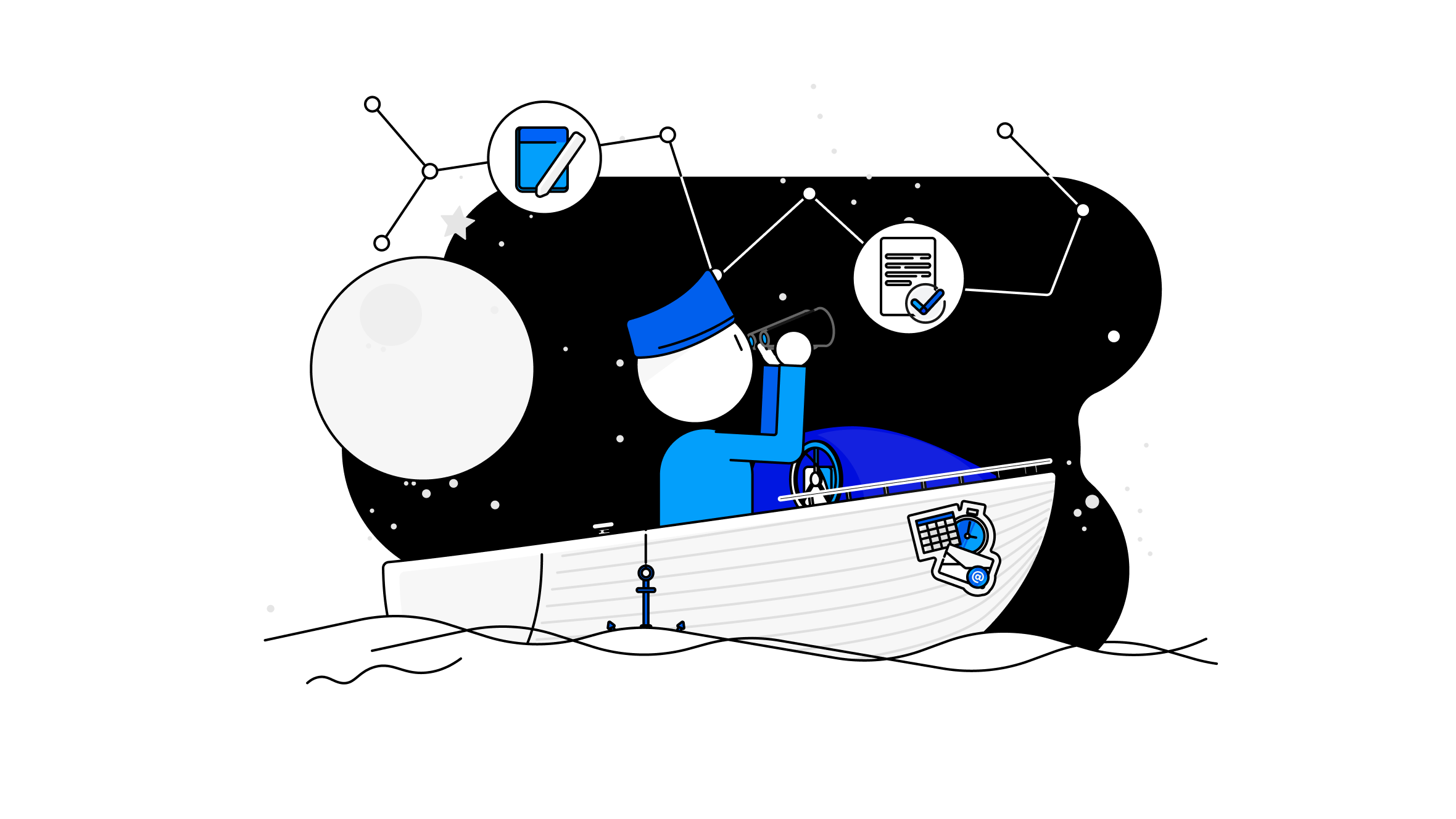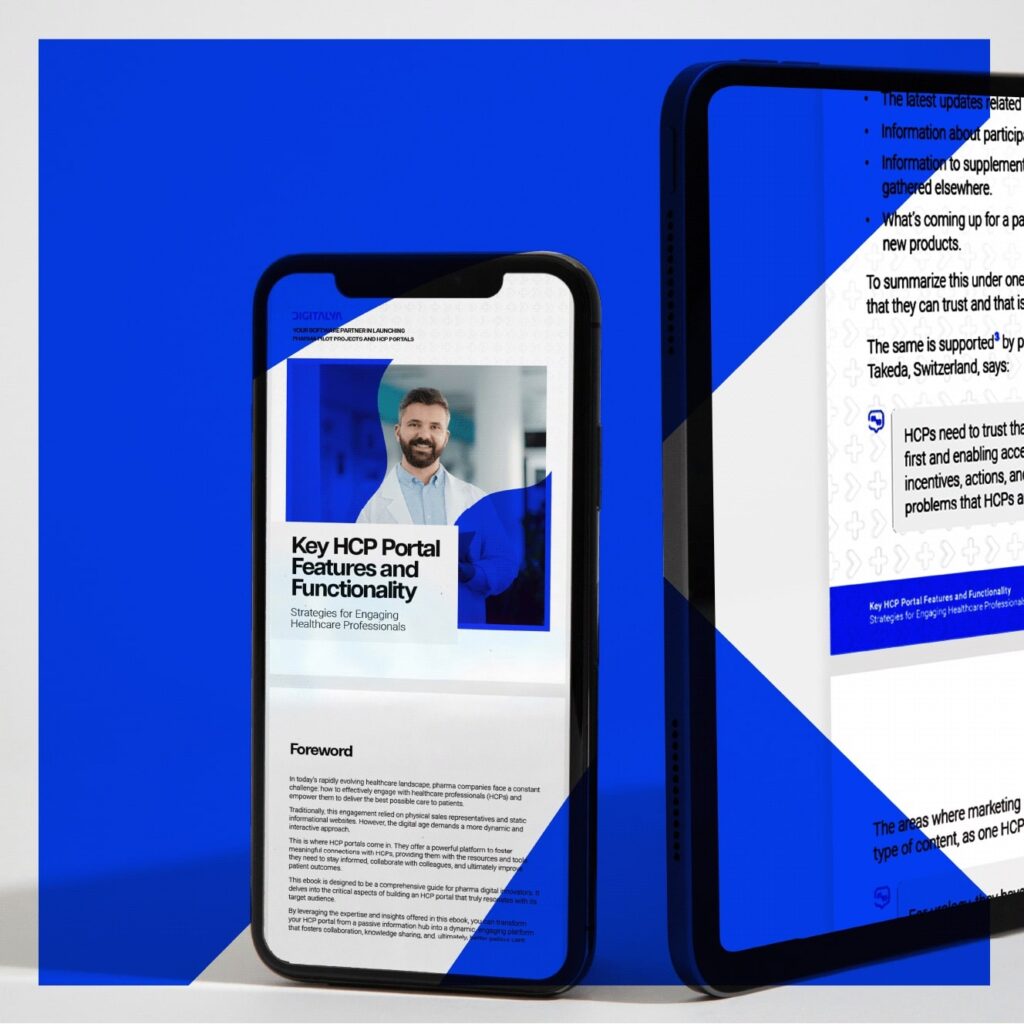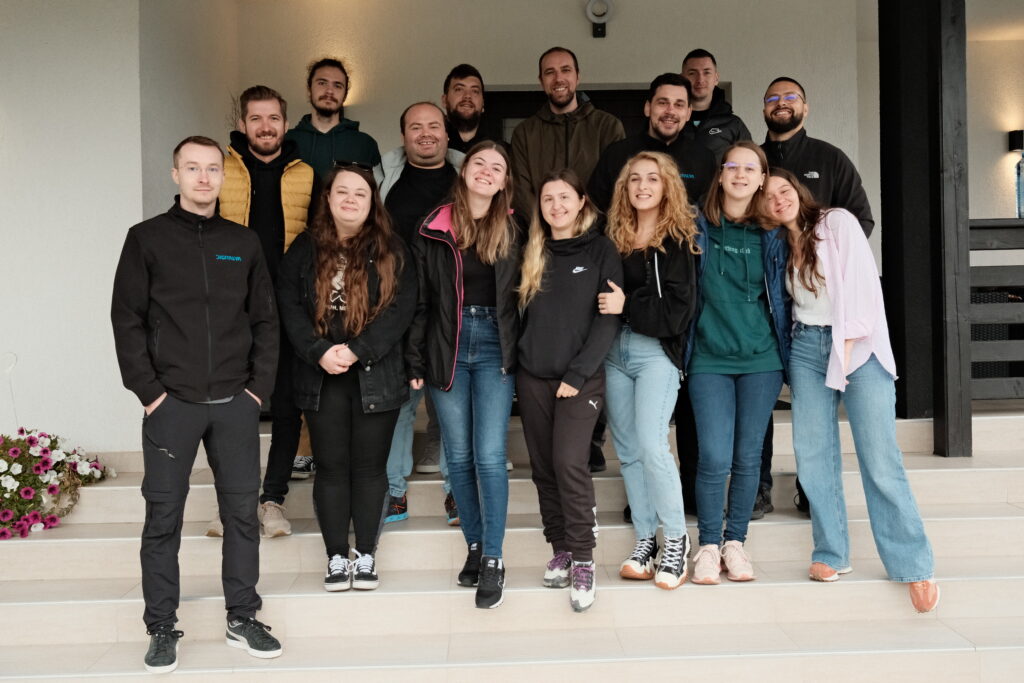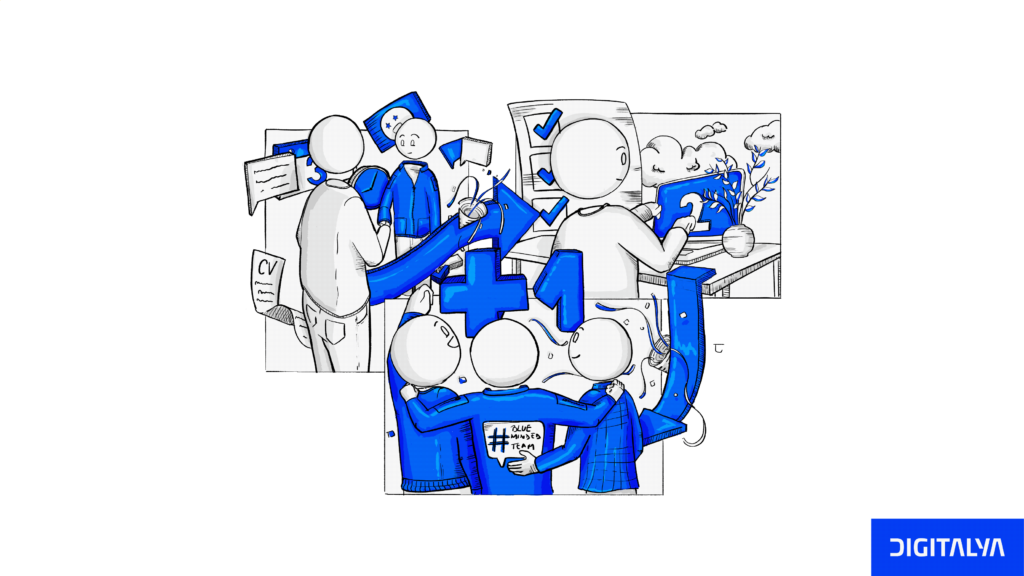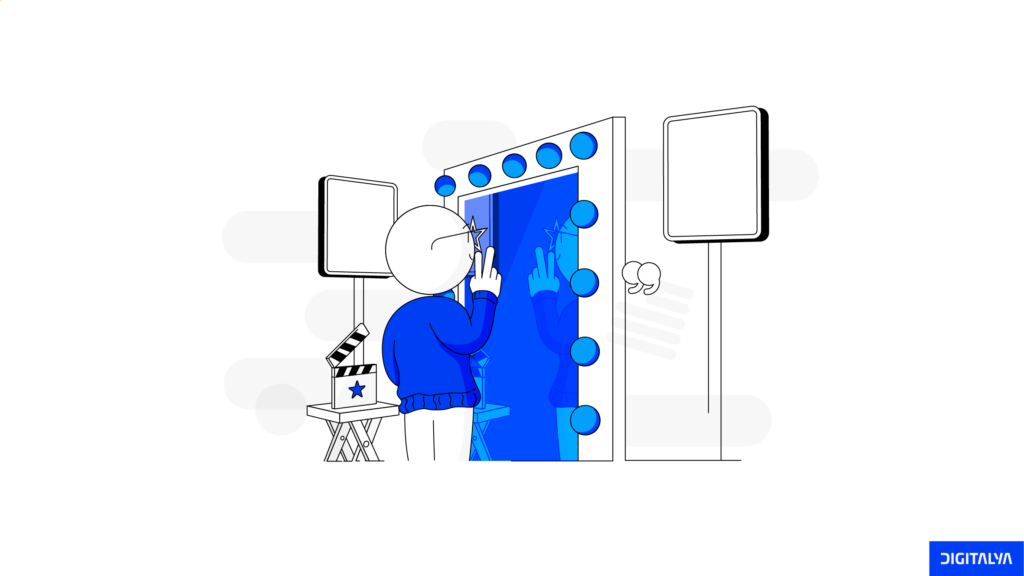Guiding the intricate dance of tasks, resource management, and project success, a project manager navigates modern business endeavors. In a world where success hinges on efficiency, they orchestrate strategy and collaboration, helping visions become reality.
But how do they do that?
We’ve interviewed our project managers, Bogdan, Alex, and Daniel, to learn more about the dynamic realm of project management and about the responsibilities, challenges, and triumphs they encountered.
From taming complexity to fostering synergy, let’s explore the art and science of being a project manager in Digitalya, where planning meets leadership.
- Getting to know our project managers
- Challenges in the project management process and how to overcome them
- Advice for other project managers
1. Getting to know our project managers
First of all, before learning more about their actual work, we were curious to find out why they chose to be project managers and what their journeys were like.
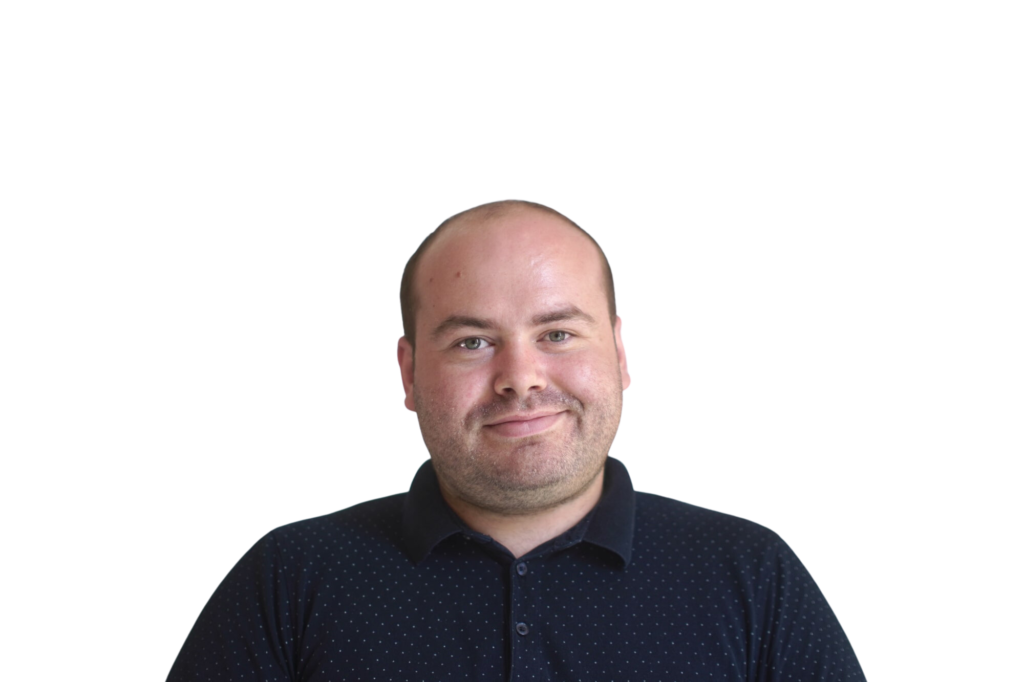
Let’s hear from Bogdan, our CTO, that started as a software developer and then eased his way into project management:
I finished the Faculty of Computer Science but started working as a developer in my third year. After a while, I discovered my passion for problem-solving and communication. This realization led me to pursue a master’s degree in project management, where I could hone my skills and apply them to my work.
While my first year as a project manager presented its challenges, I persevered and continued to learn and grow. I found that incorporating my development skills into project management allowed me to excel in both areas.

Alexandru has a similar story:
I started my career on the technical side – I’ve worked in technical support for three and a half years. Simultaneously, I served as a volunteer for an organization where I successfully managed a project with a team of fourteen individuals. I then became the organization’s president, responsible for overseeing the well-being of seventy people.
Through these experiences, I developed invaluable skills in leadership, communication, and more. However, I realized I wasn’t utilizing these skills in my current job and knew I needed a change. That’s when Digitalya presented itself as the perfect opportunity for me to apply my diverse skill set.

Daniel had a more holistic approach to the reason why he chose project management as a career:
Being a project manager has something special. It implies executive parts – you have direct responsibilities that affect the project’s outcome, but you also have to act indirectly by communicating with your team and empowering them.
This challenge is what draws me to the job – a genuine passion for the role is essential to success in this field.
We asked them to share a funny situation or joke that another project manager would understand immediately. Here’s what they said:
BogdanAll PMs tell their teams to log their hours. They do this periodically, only to find out at the end of the month that half of the team hasn’t logged their hours for two weeks. It’s kind of funny but also stressful for any PM.
During a demo, when a developer from your team tries to show the client what he has done, and you hear <<But it worked on my machine!>>
—Alexandru
Daniel<<We need a little time to take care of this>> How do you measure <<A little?>> For some, it means four to six hours; for others, it’s a week and a half.
Ha-ha. We laughed (more like we exhaled louder through our noses), and we moved on. Our next curiosity was:
What is it like to work with your teams?
BogdanMy first team as a project manager was a challenge. Communication was poor, and it felt like they were working against me instead of with me. However, I learned the importance of trusting my instincts, putting myself first, and communicating with the management to take appropriate action.
Since then, I’ve loved every team I was a part of. The best ones are where people are responsible and become autonomous. They don’t wait for their PM or product owner to give them a direction – which still happens to some extent – but are proactive and can come up with improvement suggestions.
When I join a new team, I make sure to teach them the importance of being proactive and accountable for their actions. It’s important to remember that with freedom comes responsibility.
AlexandruAs a manager of multiple teams, I strive to ensure effective communication. For example, I joined a team where communication was lacking both within the team and with our client. After three months of focused effort, communication improved, and my role as a PM became easier. The team members are now able to handle projects independently and communicate effectively, and I am able to facilitate meetings and provide support where needed.
I’ve also had to manage some projects with some very tight deadlines. It often left no room for retrospectives, causing fatigue among the team members. I make a conscious effort to avoid such situations as they can be counterproductive.
Nonetheless, I am grateful to work with exceptional teams that make my job easier. They allow me to primarily focus on delivering projects on time and ensuring the team’s stress levels are manageable.
DanielAs a team, our strengths complement each other, creating a cohesive unit. Rather than focusing on those who don’t log their hours, I choose to recognize and appreciate those who consistently deliver quality work on time. I also make it a point to remind others of their responsibilities while acknowledging the unique contributions that each team member brings to the table.
I’d say that my team is comprised of diverse individuals who communicate respectfully and effectively, making for a positive and productive work environment.
It’s very cool to see that each project manager’s experience is similar, all because we have incredible people on our teams.
However, since they all talked about how their teams are autonomous and responsible, our next curiosity was:
How important is a project manager’s job?
BogdanIt depends on your team. If they are autonomous, your importance, on a scale from 1 to 10, is quite low. That’s true if the team can handle everything independently and is mostly comprised of senior developers. When you have such a team, as a PM, you join the calls with the client, and that’s about it.
However, if you have to handle new teams, especially with junior developers or people that don’t know each other, your significance can skyrocket to a 10. In such cases, your presence is critical as you may need to guide and support them through the process.
AlexandruAt the beginning of a project, the role of a project manager is very important, let’s say a 10. They must establish a work process, identify issues, unify the team, and foster a comfortable atmosphere for communication and assistance.
As the team matures, my goal is to empower them to work independently without external help. When they can communicate directly with clients, my role becomes a 6, indicating their self-sufficiency.
DanielI’m not usually comfortable saying that my job is very important. When we have a skill, we tend to think that that skill is easy. This is why I often say the team could work just as well without me.
However, even if our developers have excellent social skills, keeping a general perspective and having non-technical discussions with the client while also writing code can be challenging. This is where a project manager steps up – having a bird’s eye view of the project and the team.
On a scale of 1 to 10, I’d rate the importance of my role as a 9. While it’s not necessarily vital, it’s certainly not something that just anyone can do.
One more question before we go down to the nitty gritty. We want to know…
What qualities should an ideal project manager possess?
BogdanTo excel as a PM, it’s crucial to remain composed when faced with pressure, maintain a high level of organization to avoid losing track of tasks, effectively manage client feedback, and draw a clear distinction between professional and personal relationships.
It’s also essential to know how to manage the pressure coming from the client. Sure, the team should know there is some, but it shouldn’t negatively impact their work. Otherwise, the quality may suffer, and deadlines may be missed.
However, knowing when and how to push for results is also key. For example, if a deadline is looming and the team is behind schedule, we must work together to deliver on time. What matters is to approach these situations with care and not make unreasonable demands on the team.
AlexandruCommunication is a crucial skill since you have to do it well within the team, with the client, and with the management. You should also be resilient – don’t take feedback personally, find solutions, consult with your team, and don’t take it home with you.
Furthermore, adapting communication styles based on the individual you’re speaking to is crucial. Finding common ground is key.
Additionally, organizational skills are paramount. You get a lot of information and need to know how to act according to it.
Finally, understanding and staying on top of the project timeline is crucial. During client calls, it’s necessary to anticipate their needs and have solutions ready, based on your team’s capabilities within a certain timeframe.
DanielIt’s vital to understand people’s needs and to be able to communicate on point. Flexibility is also key in communication, as it may require different approaches when communicating with your team and clients.
You need to be able to form connections and earn people’s trust.
Another aspect is risk management – you should be able to tell what might cause problems further down the road, what information is missing, and how to come up with solutions.
To effectively lead your team, you should maintain an optimistic outlook and have faith in their abilities. Even if you’re not directly involved in project execution, you must find ways to encourage your team and help them believe that any challenge can be overcome. When team members become discouraged and feel like giving up, it’s up to you to shift their perspective, ask the right questions, and guide them towards a solution. Don’t let negativity take over – stay positive and lead by example.
2. Challenges in the project management process and how to overcome them
Each experience is different, and each problem has multiple solutions. However, we asked our project managers about:
What are the most common challenges you faced during your career, and how did you overcome them?
BogdanThe most common challenge is missing the deadline. While this is inevitable for any new project manager, it can also be easily prevented by seeking additional opinions on time estimates and allowing for buffer time.
You have to ensure that everything is ready two weeks before the final deadline. If you notice that you’re behind, you have multiple approaches. First, you should try to catch up, especially if the delay is of a few days. If the delay is significant, I recommend informing the client of the situation and exploring options such as moving the final deadline or allocating additional resources to the project.
Another challenge could be conflicts inside the team. To address this, it is important to hold discussions with all team members and encourage open communication to resolve any issues. If conflicts persist and are unresolvable, especially in complex projects, it may be necessary to consider replacing team members as a last resort.
AlexandruAs a project manager, I face two major challenges: having difficult conversations with team members and telling a client something can’t be achieved in the required time. To address the former, I prioritize understanding the root of the problem and determining how we can work together to find a solution.
When it comes to client relations, I strive to involve my team in decision-making and present alternative options whenever possible to ensure we can deliver on our promises. While these challenges can be daunting, I believe effective communication and collaboration are key to overcoming them.
DanielGetting over the <<this can’t be done>> mentality and switching over to <<everything is possible, we need resources>> was a crucial moment for me. The project I’m working on was a little rigid when it started, but now things are different – we can do whatever the client asks of us, with the right time and resources at our disposal. On top of that, the team learned to understand the end-users’ point of view, and one of the first questions they ask is <<How is this extra thing going to bring added value to the project?>>
Another challenge was learning to deal with people that have very different opinions from me. Although we might not always see things similarly, we learned to appreciate each other for our strong opinions and know when to agree to disagree.
Lastly, we have a strong aversion to saying “no” and love a good challenge. While it’s tempting to accept any client challenge, we’ve learned to consider risk management more carefully.
How about some unusual challenges?
BogdanFive or six years ago, I took some time off. I went away on vacation. However, just before leaving, me and my team launched an app. Something went wrong, and I found myself writing code on my phone in an airport to fix it. Fortunately, everything turned up fine.
DanielOur commitment is to resolve any fixable issues, regardless of whether they fall under our responsibility or not. Our clients have come to expect this level of service. However, there was one instance where a situation occurred that was beyond our control. The client was surprised to find something we couldn’t fix. It was a funny situation.
3. Advice for other project managers
To conclude our article, we asked our PMs to share some pieces of advice with other project managers – no matter their experience.
BogdanTo be successful, it is crucial to trust your intuition and acknowledge when you are unsure or have made an error. It is important to take responsibility for your mistakes and actively seek solutions to improve the situation.
AlexandruListen to your team, understand them, and make sure everyone is on the same wavelength.
DanielTo effectively lead a team, it is crucial to be mindful of how pressure is distributed amongst team members. In the early stages of my career, I believed that easing the workload and creating a relaxed environment was best for my team. However, this approach led me to overwork myself and neglect my own well-being. Additionally, it failed to set a good example for my team to follow. Therefore, it is important to strike a balance between supporting team members and modeling healthy habits.
We hope this article gave you a glimpse into the life of a project manager in Digitalya.
You can always talk to Bogdan, Alexandru, or Daniel on Linkedin or if you feel like our way of doing things matches your expectations, feel free to apply to join our team!
